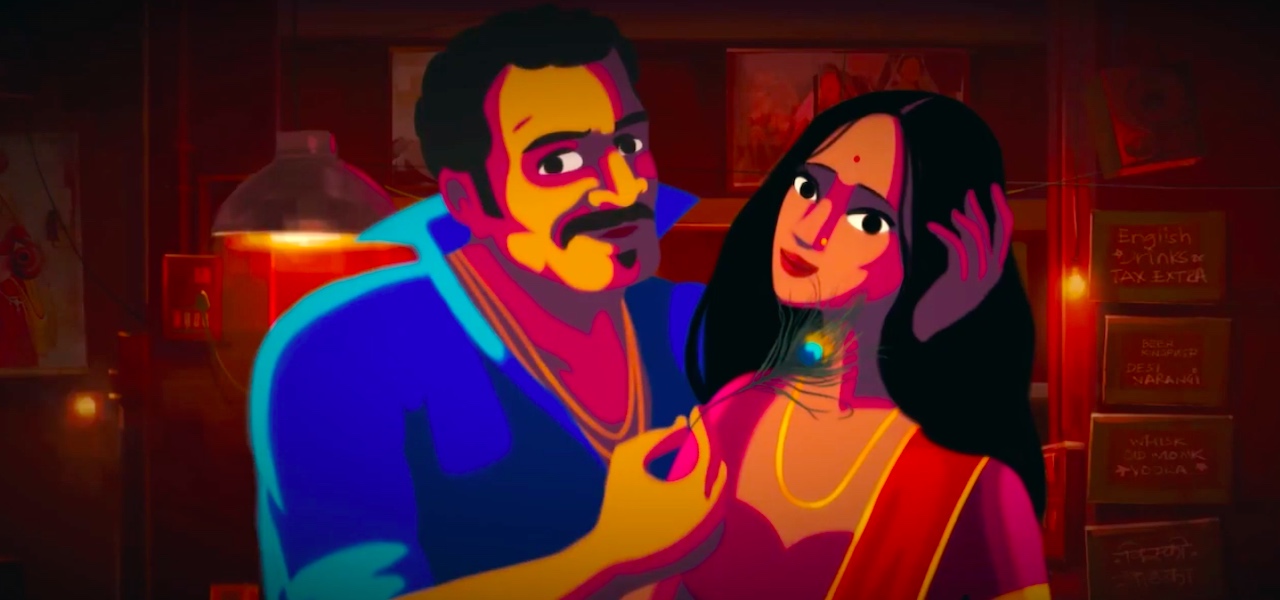

First Trailer: ‘Bombay Rose,’ An Indian-European Co-production, Impresses At Venice Film Festival
There is much to distinguish Bombay Rose, which opened the Critics’ Week sidebar at the Venice Film Festival last Wednesday (watch the trailer below).
The 2d animated feature is hand-painted, taking six years to complete. It was written, designed, and directed by a woman, Gitanjali Rao, in an industry where female helmers remain the exception to the rule. And as the title hints, it is an Indian tale told by Indian creators — another rarity among animated features (the film was co-produced with France, the U.K., and Qatar).
Bombay Rose weaves an intricate tale of love, gender relations, and taboo in India’s biggest metropolis, Mumbai (a.k.a. Bombay). It is made up of intertwining plots featuring a nightclub dancer, her pimp, a young man orphaned by Kashmiri militants, a widowed schoolteacher, a premodern princess, a cat, and more besides. In painting the film, Rao — whose short films Printed Rainbow (2006) and TrueLoveStory (2014) won at Cannes and played at many other festivals — drew inspiration from a range of graphic styles from the Indian subcontinent.
“Wishfully thinking I’d love to believe that this will set a precedent in a kind of animation film never seen before but easy to digest, enjoy, recommend, and revisit again after a few years,” Rao told Variety. “Maybe make people more open to Indian stories in animation not restricted to mythology or fantasy or superheroes. Stories about common people that work for all ages and stages as well as class of people.”
The director credits India’s Cinestaan Film Company for helping to fund Bombay Rose and “[standing] by steadfastly” during the project’s financial struggles. The feature was co-produced with France’s Les Films d’ici and the U.K.’s Goldfinch Entertainment. Anand Mahindra and Rohit Khattar of Cinestaan produced.
Animation was handled by Mumbai-based Paperboat Animation Studios. The film will play in the Contemporary World Cinema strand at the Toronto Int’l Film Festival later this week.
Early reviews have broadly praised Bombay Rose, singling out its lush visuals while criticizing aspects of the plot and characterization.
Leslie Felperin of The Hollywood Reporter wrote:
[E]ven though [the film] touches on painful subjects such as forced marriage, the taboo against Hindu-Muslim relationships, and the economic exploitation of children, this is no poverty-porn wallow in Third World misfortune made exclusively for the West. Instead, Rao demonstrates a lightness of touch and a very Bollywood knack for melodrama and entertainment that should make the work appealing to both domestic and international audiences as a niche release.
Xan Brooks awarded the film three stars in The Guardian:
Gitanjali Rao’s film paints a luminous valentine to the city in all of its squalor and beauty and audaciously frames social-realist drama as a sentimental folk tale. The disparate ingredients do not always gel. But in fits and starts Bombay Rose casts quite a spell. I’m even tempted to regard the overstuffed plot as something of a necessity, given that the film is essentially about the crisscross of lives in a densely packed community, showing how this surging human traffic is really all connected and how the actions of one party have a domino effect on others.

